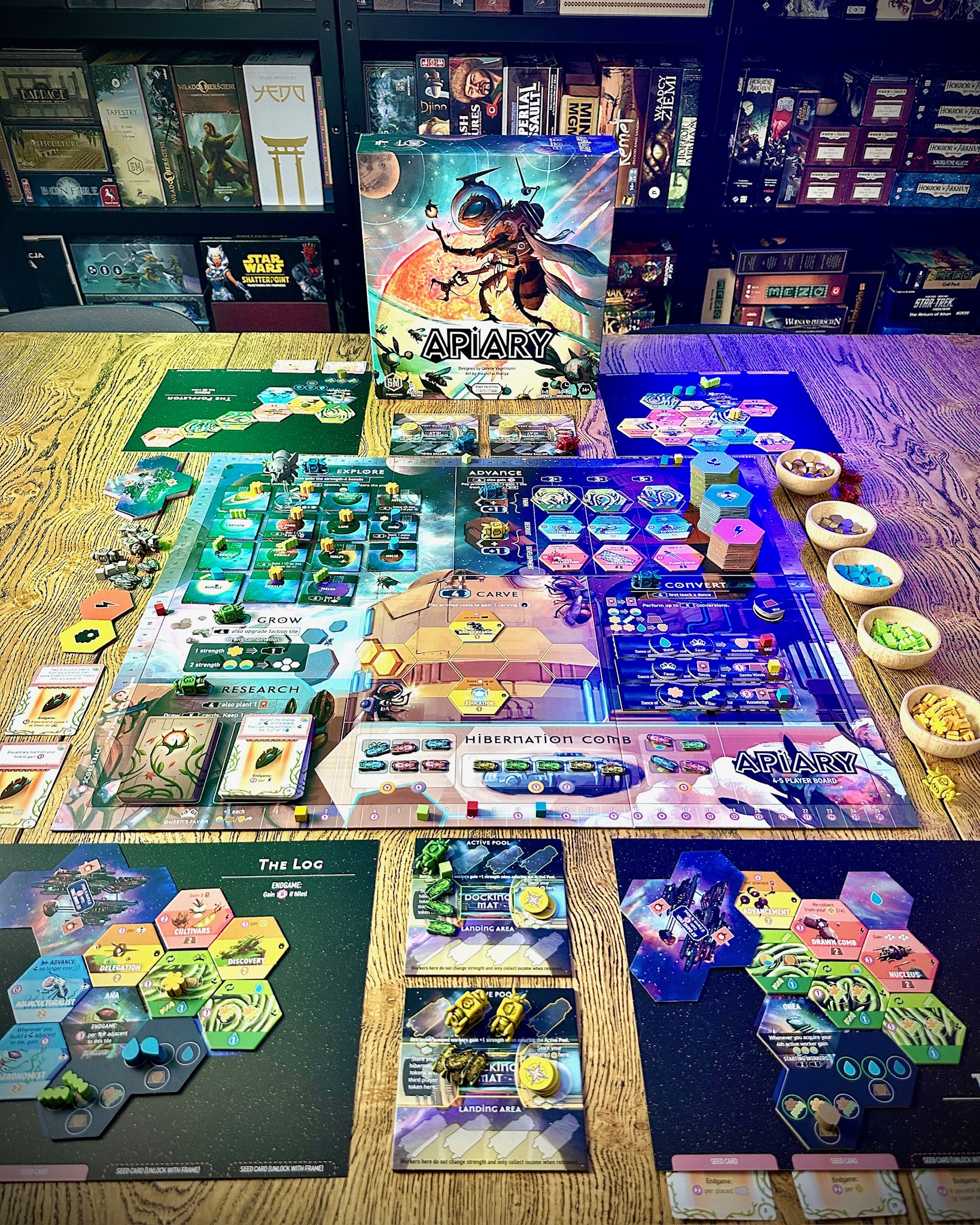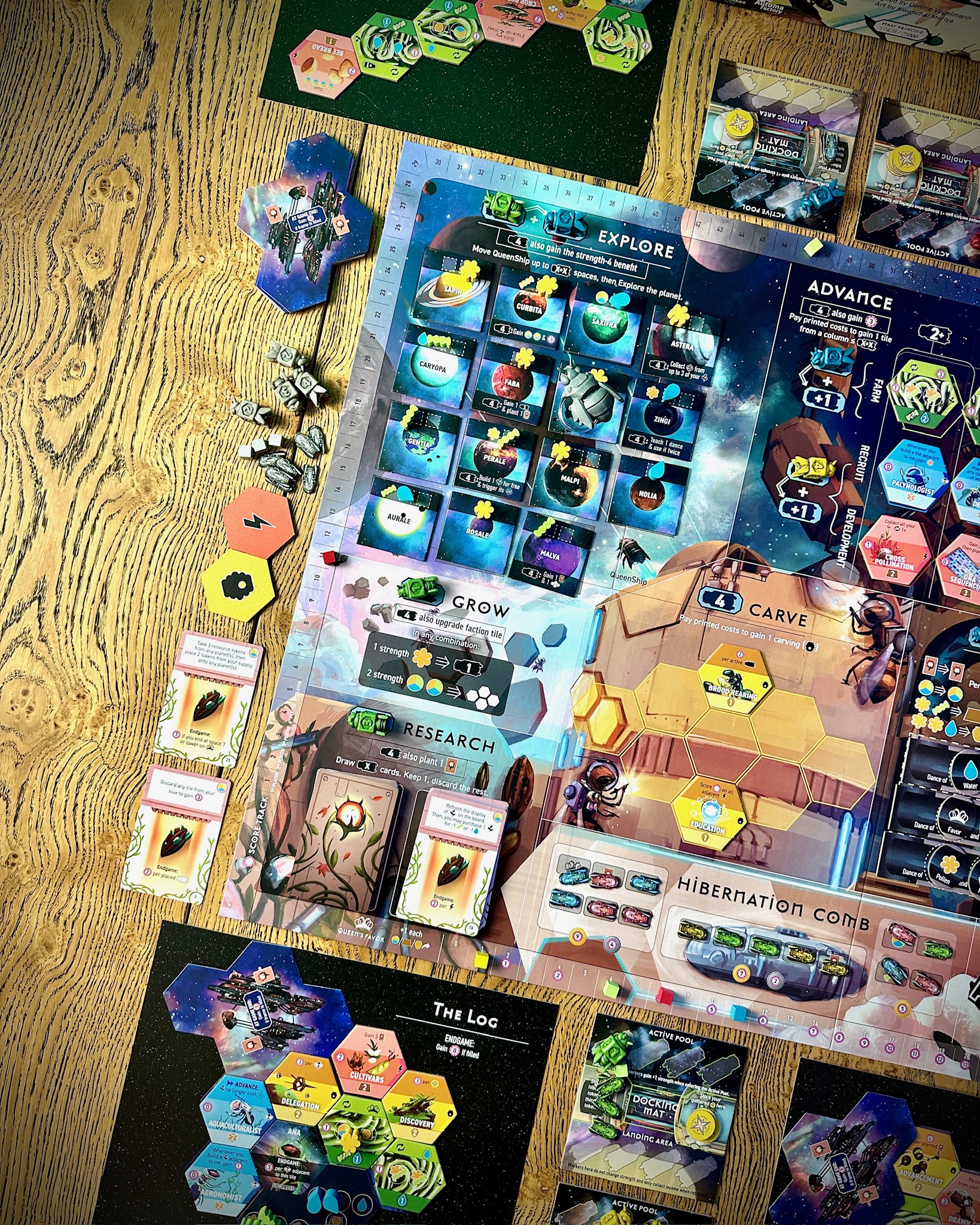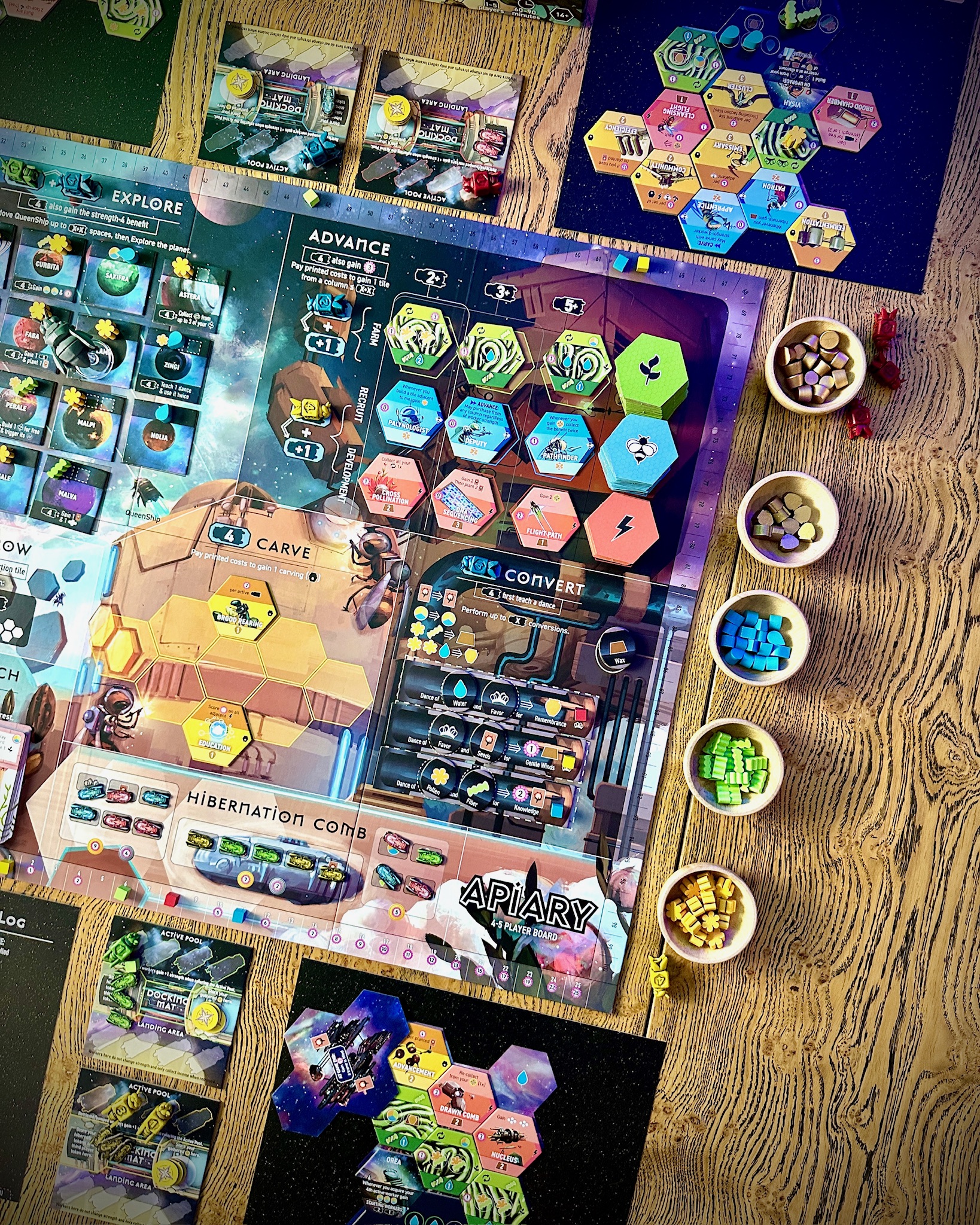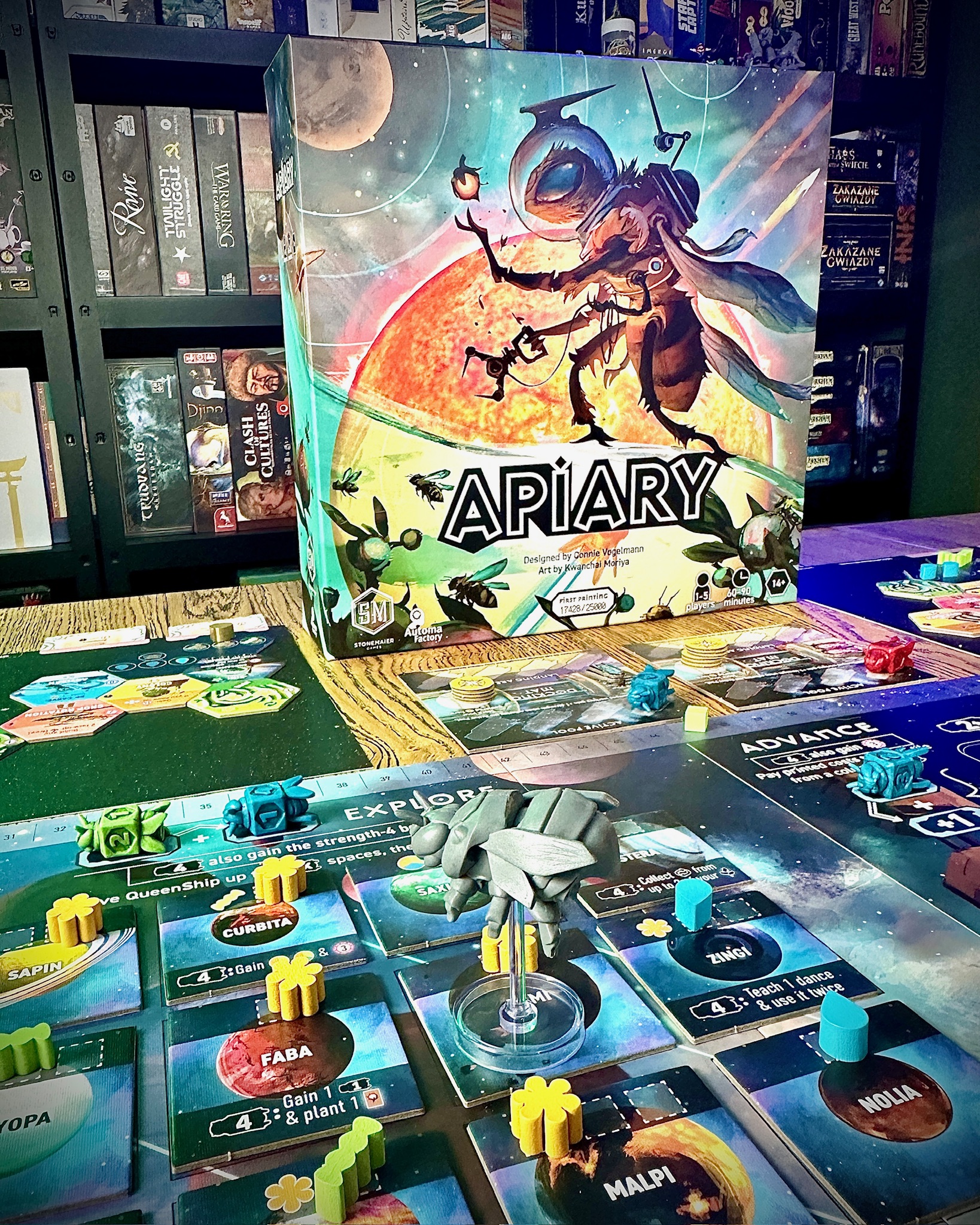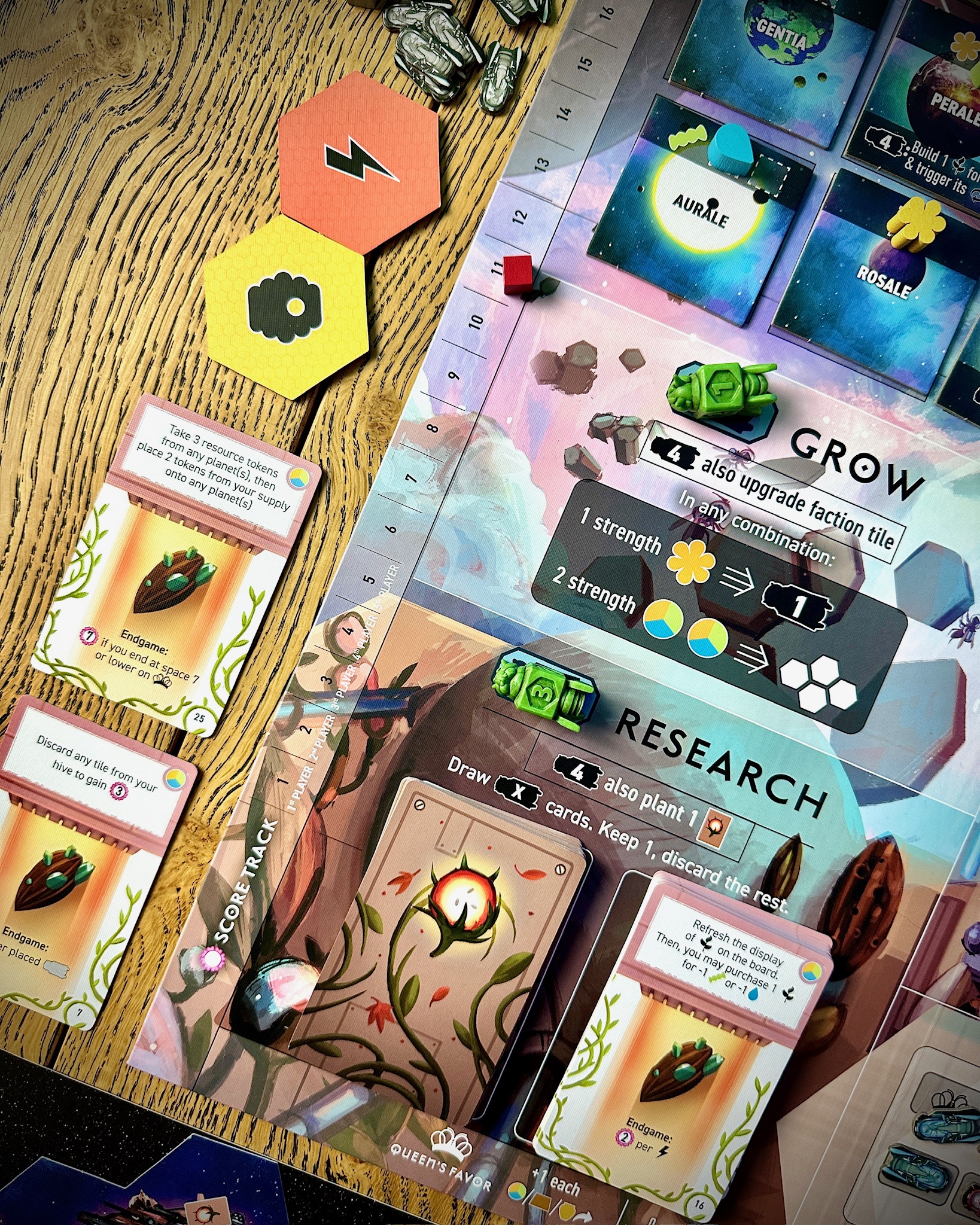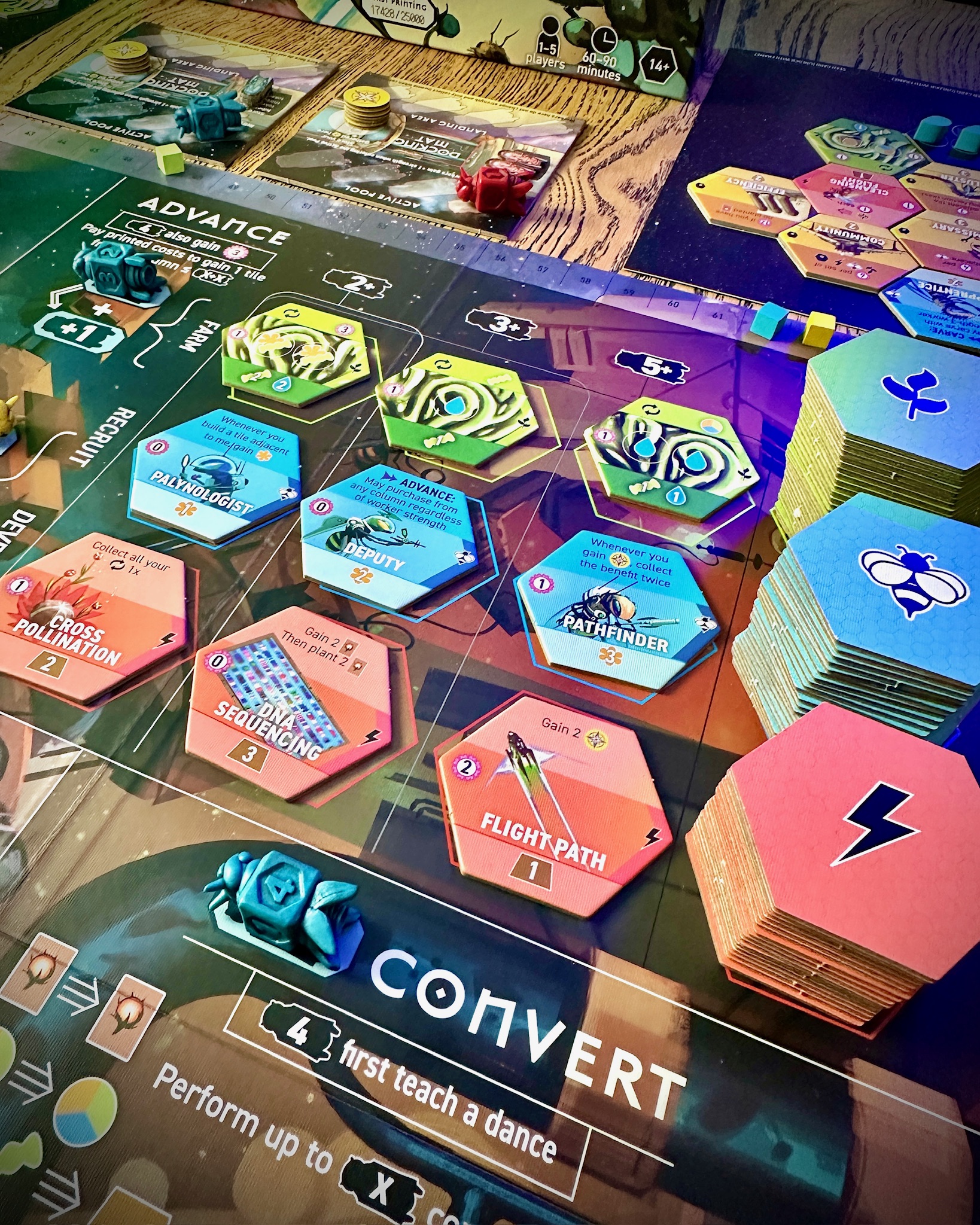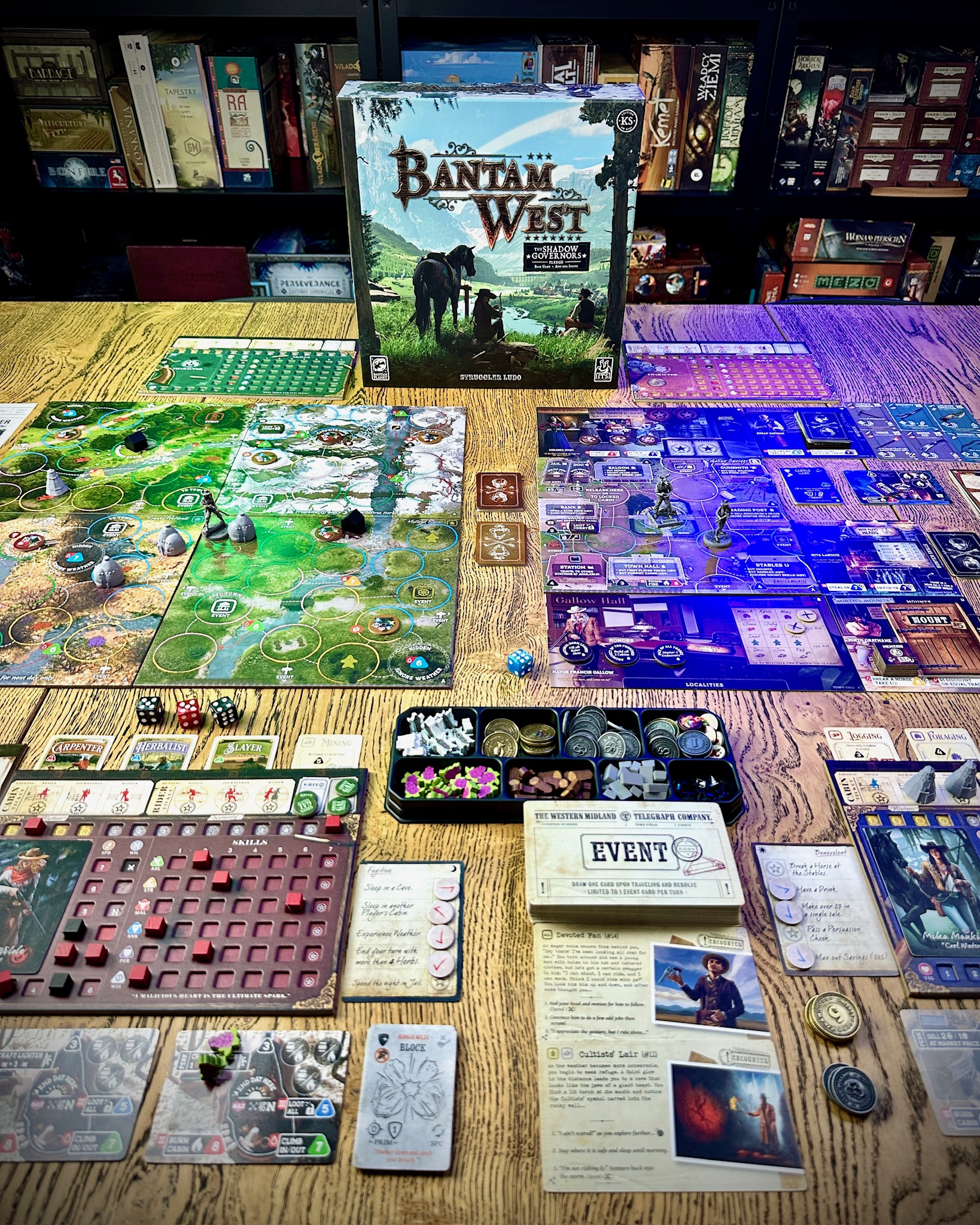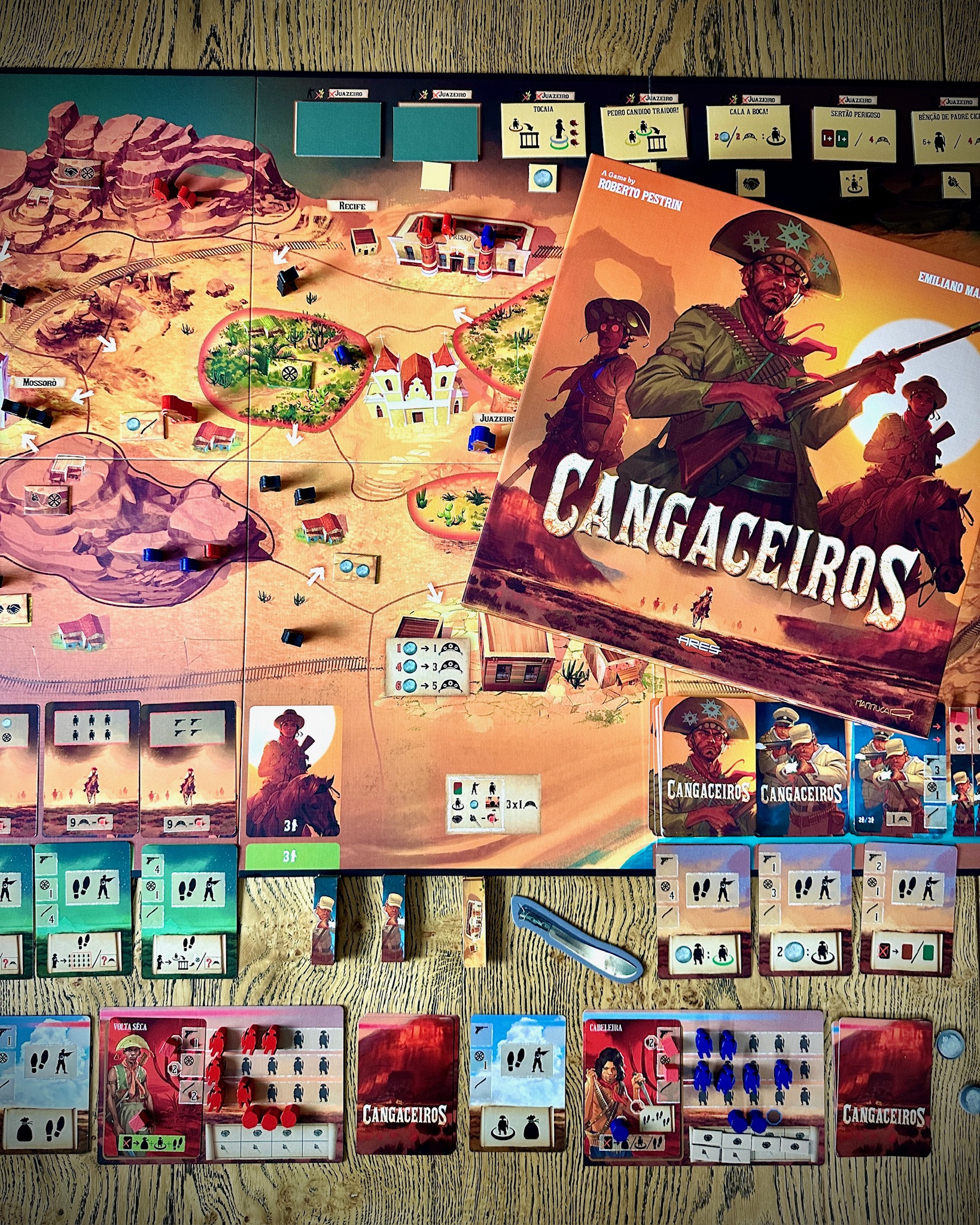Apiary: Honest & Precise Review
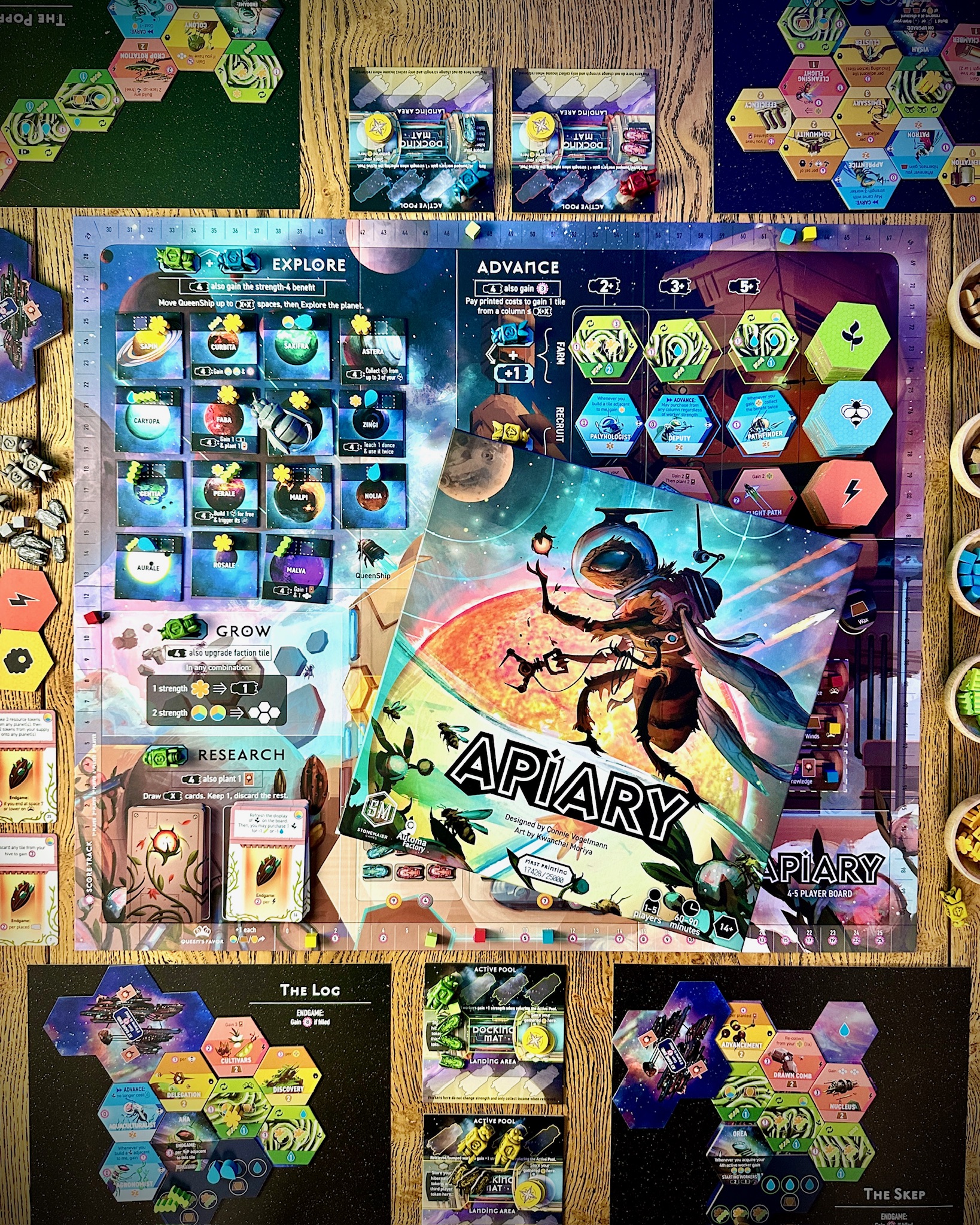
A Fresh Twist on Worker Placement
Apiary, the latest offering from Stonemaier Games, brings a refreshing twist to the classic worker placement genre. Set in a bustling world of beekeeping, players will find themselves managing hives, gathering resources, and building their colonies in this engaging strategy game.
Immersive Mechanics Grounded in Theme
What sets Apiary apart is its seamless integration of mechanics with its thematic backdrop. From placing bees on action spots to aging and upgrading them, every aspect of gameplay resonates with the beekeeping theme. This thematic coherence not only enhances immersion but also enriches the overall gaming experience.
Diverse Strategies and Asymmetric Gameplay
In Apiary, players have a myriad of strategic choices at their disposal. Each player begins with a unique hive mat and faction, offering asymmetrical gameplay that keeps every session dynamic and engaging. Whether you focus on resource gathering, hive expansion, or maximizing bee efficiency, there are multiple paths to victory to explore.
Endless Replayability
With its variety of hive configurations, research cards, and strategic possibilities, Apiary offers endless replayability. No two games will ever be the same, ensuring that players can enjoy a fresh and exciting experience with each playthrough. Whether you’re a casual gamer or a seasoned strategist, Apiary offers something new to discover every time you sit down to play.
Stunning Artwork and Production Quality
As expected from Stonemaier Games, Apiary boasts stunning artwork and top-notch production quality. From the colorful tiles to the intricate hive components, every detail has been meticulously crafted to immerse players in the world of beekeeping. The game’s visual appeal adds another layer of enjoyment to the overall experience.
Verdict
In conclusion, Apiary is a delightful addition to any board gamer’s collection. With its thematic depth, engaging gameplay, and high replayability, it offers hours of entertainment for players of all skill levels. Whether you’re drawn in by the unique theme or the strategic depth, Apiary could become a favorite at your gaming table.
– David
Scratches: 8.0/10.0

